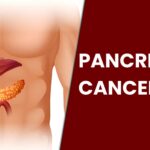As the name suggests, these cancers affect the head and neck areas of the body. The peculiarity of these cancers is that they are easily preventable and highly treatable if caught early. The most common causes are Human papillomavirus (HPV) and alcohol and tobacco use.
Here’s more about these cancers and their treatment options.
Oral, Head, and Neck Cancers
These cancers involve:
- Salivary glands: These glands produce saliva to keep your mouth and throat moist
- Oral cavity: Tongue, the lining of lips and cheeks, gums, top and bottom of the mouth, and behind the wisdom teeth
- Nasal Cavity: The hollow space inside the nose
- Sinuses: The hollow spaces surrounding the nose
- Tonsils
- Ears
- Voicebox
- Throat
- Lymph nodes of the upper neck
Causes And Risk Factor
Two main substances that increase the risk of head and neck cancers include:
- Alcohol: Excessive and frequent alcohol consumption increases the risk of oral cancers.
- Tobacco: It includes smoking cigars, cigarettes, or pipes. This is the most common risk factor responsible for almost 70% to 80% of these cancers.
Symptoms
In most cases, symptoms of head and neck cancers are mild, including:
- A persistent sore throat
- A tongue or mouth sore that doesn’t heal
- Hoarseness
- A red or white patch of tongue, gums, or lining of the mouth
- Frequent sinus infection that is not responsive to antibiotics
- Swelling in the neck, jaw, or one side of the face
- Frequent headaches
- Trouble swallowing
- A neck pain that doesn’t subside
- Pain in upper teeth
- Persistent earaches
- Bleeding through the mouth, nose, or blood in saliva
As discussed before, these cancers are easily manageable when diagnosed early. So, if you have any of the mentioned symptoms, consult your physician immediately.
Management
The first step in managing these cancers is determining the stage of cancer:
- Stage I and II: They are small cancers and have not spread from their original location
- Stage III and IV: They are large tumors or have spread to nearby lymph nodes.
Your age, health conditions, and stage of cancer will determine the treatment plan
Three main courses of treatment are surgery, radiation therapy, and chemotherapy:
- Surgery: The surgeon will remove cancer and the surrounding healthy tissue. Lymph nodes in the neck may also be removed. Patients may need speech therapy and reconstructive procedure after the surgery.
- Radiation therapy: The therapy includes high-energy X-rays to kill abnormal cells. This is done through a machine placed near the body.
- Chemotherapy: It involves the use of anti-cancer medicines to kill cancer cells in the body and is preferred during the advanced stages.





